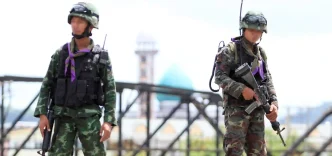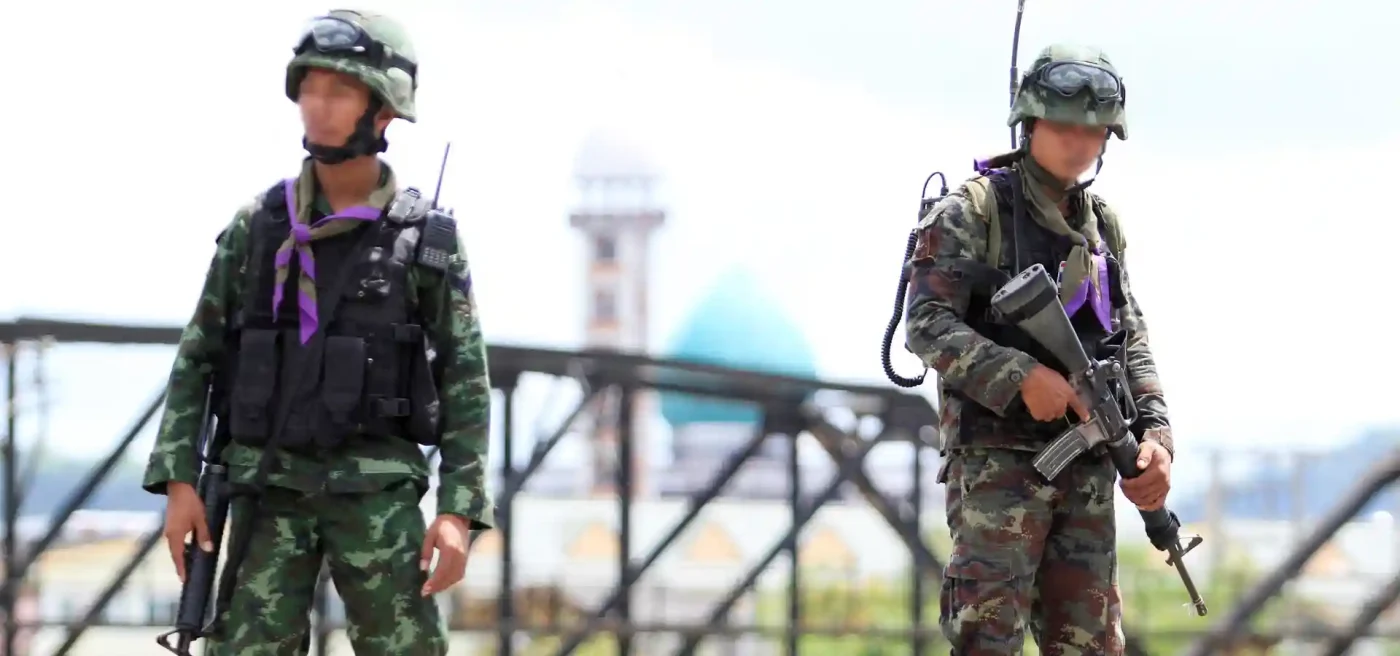In a significant diplomatic exchange, Thai Prime Minister Paetongtarn Shinawatra and her Malaysian counterpart, Anwar Ibrahim, have pledged to tackle the escalating violence in Thailand’s southern border provinces while advancing joint development initiatives. The phone conversation on May 8, 2025, underscored a shared commitment to regional stability and economic progress, amidst ongoing challenges in Thailand’s deep South, where recent attacks have claimed civilian lives and disrupted local communities.
Concerns Over Southern Violence
The southern provinces of Thailand, particularly Narathiwat, Pattani, and Yala, have long been a hotspot for insurgent activity, with separatist groups targeting both security forces and civilians. Prime Minister Paetongtarn expressed deep concern over the recent wave of violence, which has affected innocent residents and cast a shadow over development efforts in the region. According to Thai government spokesman Jirayu Houngsub, the premier highlighted the urgent need for collaborative action during her discussion with Anwar.
In response, the Malaysian leader affirmed his country’s willingness to assist Thailand in curbing the unrest. Anwar emphasized that the violence not only poses a humanitarian challenge but also hampers economic prospects along the shared border. Malaysian officials have previously noted the spillover effects of instability, including disruptions to trade and cross-border movement. While specific details of Malaysia’s support were not disclosed, analysts suggest it could involve intelligence sharing or joint security measures, building on past cooperation frameworks.
The unrest in southern Thailand is rooted in a decades-long conflict driven by ethnic Malay-Muslim separatist groups seeking greater autonomy or independence from the predominantly Buddhist Thai state. Recent reports indicate that at least 18 attacks have occurred in the region over the past few months, a surge attributed to insurgent factions by southern police authorities. While no group has officially claimed responsibility for the latest incidents, the impact on local communities remains profound, with families displaced and infrastructure damaged.
Border Development as a Path to Peace
Beyond addressing security concerns, the leaders focused on strengthening economic ties through infrastructure projects. A key highlight of their conversation was the planned opening of a new road link between the Sadao checkpoint in Thailand and Bukit Kayu Hitam in Malaysia, expected to be completed by the end of 2025. Both Paetongtarn and Anwar agreed to jointly witness the inauguration, signaling the importance of this project for cross-border connectivity.
The new road link is anticipated to boost trade and tourism, providing a vital economic lifeline for communities on both sides of the border. Thai officials estimate that the upgraded infrastructure could increase annual bilateral trade by up to 10%, benefiting sectors such as agriculture and manufacturing. During the opening event, the leaders also plan to hold a mini joint cabinet meeting to discuss further cooperation, potentially covering areas like customs harmonization and joint investment initiatives.
Development of the border region has long been viewed as a strategy to undermine insurgent influence by addressing underlying grievances such as poverty and lack of opportunity. However, progress has often been stymied by security risks and bureaucratic hurdles. If successful, the Sadao-Bukit Kayu Hitam project could serve as a model for integrating economic growth with peacebuilding efforts, though experts caution that sustained dialogue with local communities will be essential to ensure lasting impact.
Broader ASEAN Cooperation
The dialogue between Paetongtarn and Anwar extended beyond bilateral issues to encompass regional priorities within the Association of Southeast Asian Nations (ASEAN). The Thai premier voiced strong support for Malaysia’s current role as ASEAN chair, advocating for closer collaboration among member states to navigate global trade challenges. With economic headwinds affecting export-driven economies across the region, such as fluctuating commodity prices and supply chain disruptions, ASEAN unity has become increasingly critical.
Paetongtarn also endorsed ASEAN-led efforts to address the ongoing crisis in Myanmar, where political turmoil and violence have persisted since the military coup in February 2021. She emphasized the importance of humanitarian assistance for displaced populations and reiterated Thailand’s commitment to facilitating dialogue, despite limited progress on the bloc’s five-point consensus plan for peace. Anwar, in turn, acknowledged Thailand’s strategic position as a neighbor to Myanmar and expressed hope for coordinated action at the upcoming 46th ASEAN Summit later in May 2025, where both leaders are set to meet again.
The Myanmar issue remains a litmus test for ASEAN’s relevance and ability to manage internal conflicts. While Thailand and Malaysia have historically played mediating roles, their approaches sometimes diverge due to domestic political considerations. Thailand, hosting thousands of Myanmar refugees along its western border, faces direct consequences of the conflict, while Malaysia has been vocal about human rights abuses, particularly concerning the Rohingya minority. Bridging these perspectives within ASEAN could shape the bloc’s credibility on the global stage.
Challenges and Opportunities Ahead
The commitments made during the May 8 phone call reflect a pragmatic blend of security and economic priorities, but significant obstacles remain. In southern Thailand, the cycle of violence shows little sign of abating, with insurgents exploiting local grievances over cultural identity and economic marginalization. While Malaysian support offers a diplomatic boost, tangible outcomes will depend on Thailand’s ability to balance military responses with inclusive governance reforms—a delicate task given historical mistrust between the central government and southern communities.
On the economic front, the border road project carries symbolic and practical weight, yet funding and logistical delays could undermine its timeline. Thai officials have allocated approximately 250 million Thai Baht (US$7 million) for the initiative, with Malaysia contributing technical expertise and parallel infrastructure upgrades. Ensuring that benefits reach local populations, rather than being siphoned off by corruption or mismanagement, will be critical to maintaining public support.
Moreover, the broader ASEAN agenda, including the Myanmar crisis, tests the limits of regional solidarity. As global powers like the United States and China vie for influence in Southeast Asia, Thailand and Malaysia must navigate external pressures while addressing domestic imperatives. Paetongtarn’s outreach to Anwar signals an intent to prioritize neighborly ties, but translating goodwill into actionable policy will require sustained political will from both capitals.
Regional Stability at Stake
The dialogue between Thailand and Malaysia comes at a pivotal moment for Southeast Asia, where localized conflicts and economic uncertainties threaten to destabilize the region. By focusing on southern Thailand’s violence and border development, Paetongtarn and Anwar are laying the groundwork for a partnership that could resonate beyond their shared frontier. Yet, as the ASEAN Summit approaches, the question looms: can bilateral cooperation evolve into a broader framework for peace and prosperity, or will entrenched challenges continue to frustrate progress?
For now, residents of Thailand’s southern provinces and border towns watch with cautious hope, awaiting signs that diplomatic promises will translate into safer streets and brighter futures.















